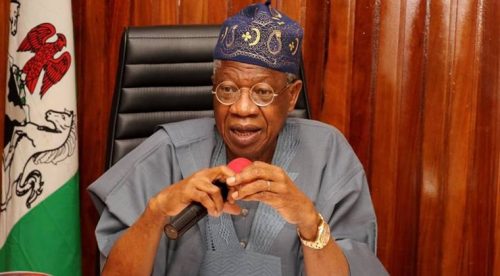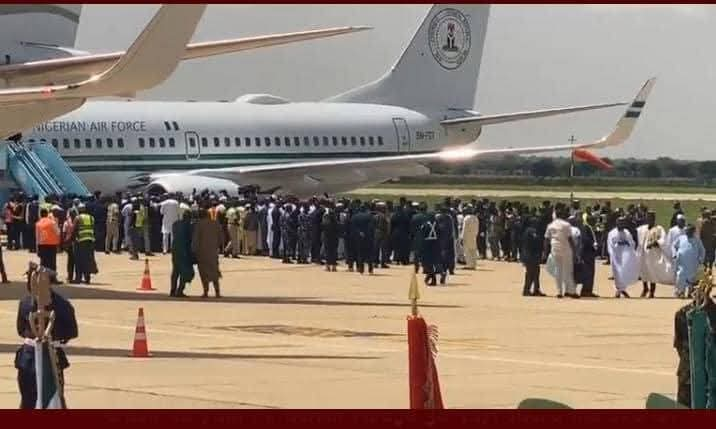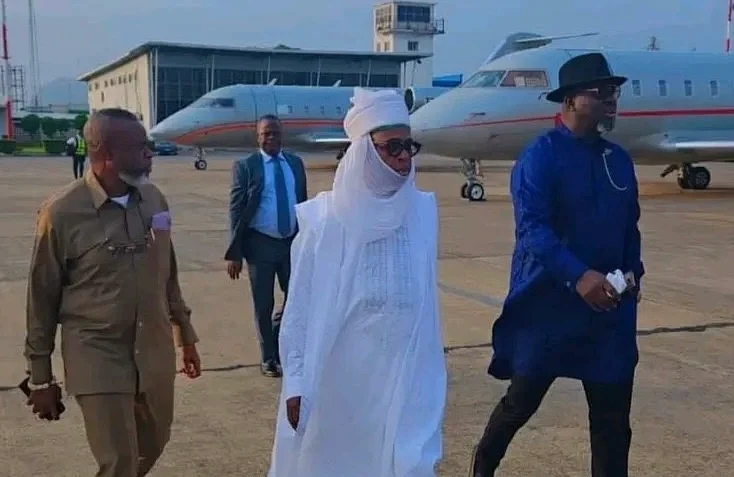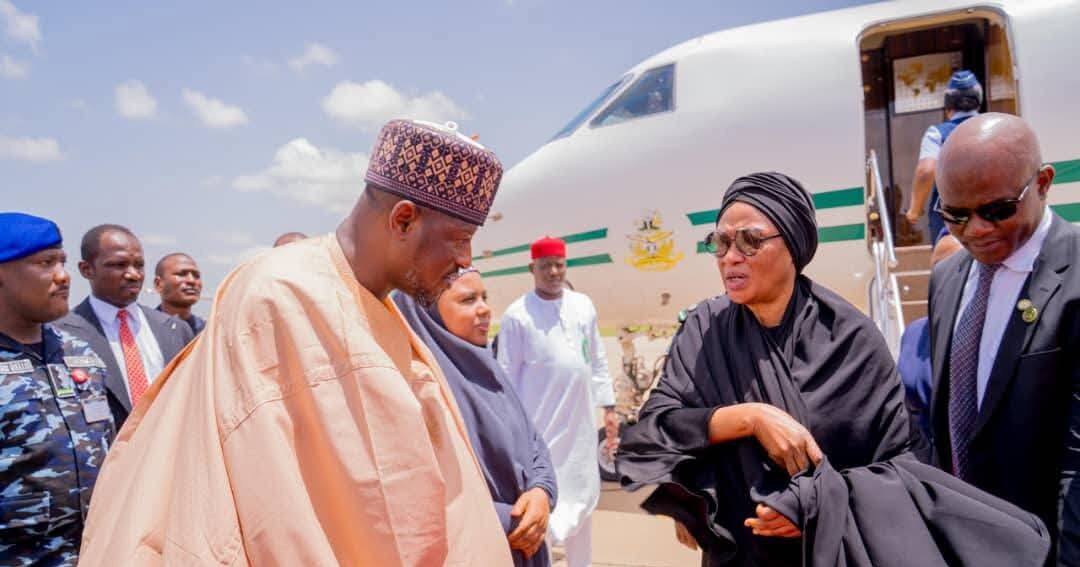The Minister of Information and Culture, Lai Mohammed, says the fact that bandits are imposing levies on communities does not mean they have taken control.
Mohammed said this during a press conference in Abuja on Thursday while reacting to an article by The Economist magazine titled, ‘Insurgency, secessionism, and banditry threaten Nigeria.’
The minister said the London-based magazine was wrong to claim that terrorists had carved caliphates for themselves in the North-East.
While answering questions from journalists on banditry in the North-West where bandits now impose levies on communities, Mohammed argued that imposing levies does not mean criminals are in charge, adding that it takes place in many parts of the country, including in the South where touts commonly referred to as ‘area boys’, impose levies.
He added, “Do you know how many places in this country where area boys collect taxes? And there is no terrorism or banditry there. I don’t want to mention names.
“In many of our cities, they carve out their own territory. So, it is not indicative of the bandits having taken over.
“No. I know many areas in Nigeria both in the South and the North where these kinds of things happen. So, it is not the same thing.”
The minister urged the Nigerian media to stop glorifying negative reports published by their foreign counterparts.
Mohammed said The Economist Intelligence Unit, which is a sister organization of The Economist magazine, had predicted in 2019 that the Peoples Democratic Party’s presidential candidate, Atiku Abubakar, would win the election but the prediction turned out to be false.
“President Muhammadu Buhari won re-election by over three million votes. So, The Economist and other arms of the group are not infallible,” the minister argued.
Mohammed argued that the idea of the Nigerian media regurgitating things published or reported by foreign media is antithetical to its reputation of independence and vibrancy.
“The Nigerian media does itself a great disservice by turning itself into an echo chamber of the foreign media. When The Economist reported its patently-wrong and badly-researched story, it was immediately amplified by the local media, without even interrogating its content? This is totally unconscionable!” he added.
The minister maintained that contrary to the article by The Economist, Boko Haram had been degraded. He, therefore, lambasted the newspaper for attempting to downplay the exploits of the Nigerian military.
He added, “Again, at a time that Boko Haram and ISWAP are taking on each other in mutually-destructive lockstep, and at a time that the terrorists are surrendering in droves as a result of heavy pounding by the military, it is wrong to say that Jihadists are carving out a Caliphate in the North-East, as The Economist reported.
“In any case, why would the Nigerian media become an echo chamber for a foreign newspaper that denigrates the Nigerian military and makes light of the sacrifices of our valiant troops? Would the British or American press regurgitate a report in the Nigerian press denigrating their militaries?”

 BIG STORY4 days ago
BIG STORY4 days ago
 BIG STORY4 days ago
BIG STORY4 days ago
 BIG STORY1 day ago
BIG STORY1 day ago
 BIG STORY5 days ago
BIG STORY5 days ago
 BIG STORY5 days ago
BIG STORY5 days ago
 BIG STORY6 hours ago
BIG STORY6 hours ago
 BIG STORY1 day ago
BIG STORY1 day ago
 BIG STORY3 days ago
BIG STORY3 days ago
























